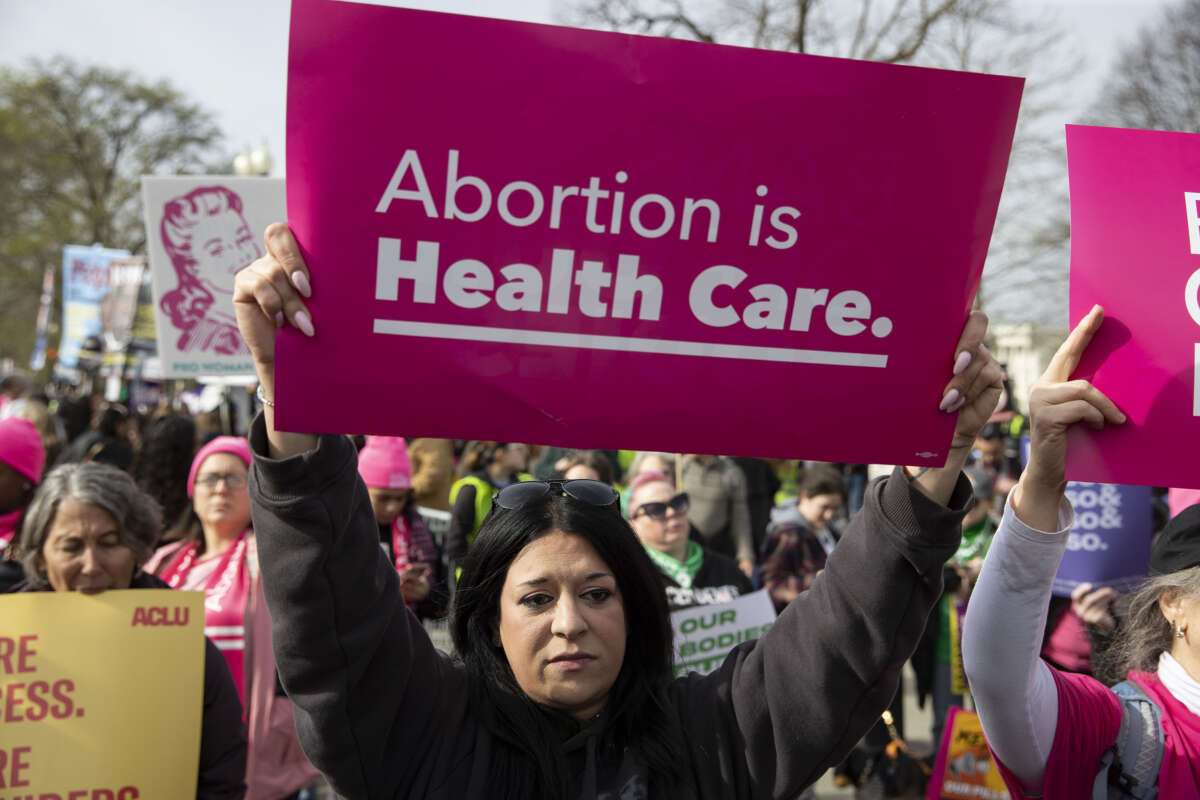New polling out of South Dakota indicates that a majority of residents in the deeply conservative, Republican-controlled state are supportive of protecting abortion rights.
The state is currently enforcing a near-total abortion ban. Passed in 2005, a “trigger” law banning abortion went into effect after the U.S. Supreme Court upended abortion protections in its 2022 Dobbs v. Jackson Women’s Health ruling, which put the issue to each state to decide.
The law only allows abortions in cases where a pregnant person’s life is at risk — a standard that, in practice, is rarely implemented, as doctors worry that the vague wording of such laws may leave them vulnerable to legal consequences for performing an abortion deemed illegal by the state. The South Dakota law also makes no exceptions for rape or incest.
The possibility of abortion protections being passed by the state legislature is incredibly dismal — South Dakota is a Republican stronghold, with former President Donald Trump winning the state in 2020 against Joe Biden by a 26.2-point margin, and GOP Gov. Kristi Noem defeating her Democratic opponent Jamie Smith in 2022 by a 27.2-point margin. The state legislature is even more Republican — in the 35-seat state Senate, Democrats have only four seats total, and in the 70-seat state House of Representatives, the party is only in control of seven seats.
Despite the strong Republican hold on the state, however, voters are overwhelmingly supportive of an abortion rights initiative that’s set to be on the ballot in this fall’s elections.
The proposal, formally titled the South Dakota Constitutional Amendment G, would create a framework that limits state regulation of abortion services based on the trimester of pregnancy. In the first trimester, the state is not allowed to interfere with a person’s abortion rights whatsoever. In the second trimester, some regulations can be allowed, but “only in ways that are reasonably related to the physical health” of a pregnant person, according to the proposal’s text. And in the third trimester, the state may regulate the procedure, but cannot restrict it “when abortion is necessary, in the medical judgment” of a patient’s physician, “to preserve the life and health” of a pregnant person.
According to polling data from the University of South Dakota, voters in the state support the measure by a wide margin.
A clear majority of registered voters, 53.4 percent, say they would vote “yes” for the proposal today. Meanwhile, just 35.4 percent say they would vote “no,” with another 11.2 percent saying they’re unsure.
Support for the measure transcends party lines — nearly two-thirds of Democrats (65.5 percent) back the amendment proposal, along with close to 6 in 10 independents (57.8 percent). Even a plurality of Republican voters back the amendment, with 45.5 percent saying they’d vote “yes” and 40.7 percent saying “no.”
The shift in support for the measure is a big change from what voters were saying in November — back then, only 46 percent of voters overall backed the same measure, with 44 percent opposed.
South Dakota “is operating under one of the most extreme abortion bans in the country, and there’s been a backlash,” explained Rick Weiland, co-founder of Dakotans for Health. “People want common-sense reproductive health care options in a state where that freedom has been taken away.”
The new polling data is further indication that, even in some of the most conservative parts of the U.S., abortion rights are still popular.
Four states in total — South Dakota, Colorado, Maryland and Florida — are set to hold ballot initiatives for voters to decide on expanding abortion rights this fall. Four other states are currently in the signature-gathering stage of the process, while organizers in two additional states are currently awaiting certification after having submitted their signatures.
In all, 10 states across the country could have an abortion rights measure on their ballot in November. Of those 10 states, six supported Trump in the last presidential election, again indicating that abortion is a motivating factor for voters even in Republican-led states.
Press freedom is under attack
As Trump cracks down on political speech, independent media is increasingly necessary.
Truthout produces reporting you won’t see in the mainstream: journalism from the frontlines of global conflict, interviews with grassroots movement leaders, high-quality legal analysis and more.
Our work is possible thanks to reader support. Help Truthout catalyze change and social justice — make a tax-deductible monthly or one-time donation today.
